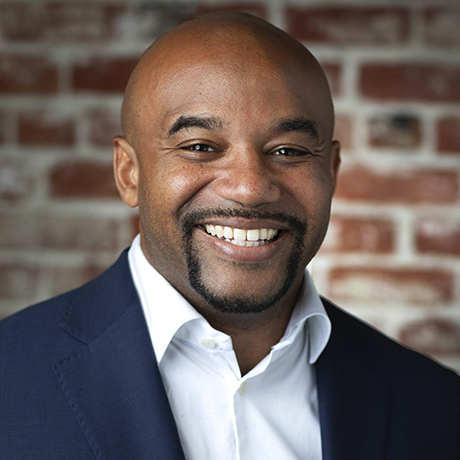
HOW ARE
YOU FEELING?
It’s ok to NOT be OK…
It’s a myth that as a dad, you must be ‘strong’, despite possibly experiencing your own feelings of anxiety, feeling out of control and other things too. As much as you want to be there for your partner, it can be difficult juggling your needs, your partners needs, and the needs of new persons you helped bring into this world.
Being a Dad is tough, really tough…
Most Dad’s put on a brave face for their family and friends and pretend everything is ok when it isn’t. The pressures and expectations to support your family financially, emotionally and carving out some time for ourselves can take a massive toll on your mental health. Maybe you aren’t feeling right? Maybe something feels a bit off?
You are NOT alone…
The number of men who become depressed in the first year after becoming a dad is double that of the general population. 25% of dads experience mild depressive symptoms and around 10% to 12% receive a formal diagnosis of depression. The number of fathers experiencing perinatal anxiety or depression nearly doubles when the mother also has a perinatal mental illness.
Recognise the signs…
Taking care of your mental health is like tuning in to your feelings and recognising when something doesn’t quite feel right. Do you feel down often? Are you constantly worried? Do you have trouble sleeping? Do you not enjoy the activities that you used to do? These are signs that your mental health needs some attention.
Don’t feel you can’t reach out for help…
DAN’S STORY

There is often a lot of stigma around the idea that men shouldn’t be emotional and it’s natural to compare yourself to other dads, especially when you’re new to parenthood.
However, not enough is spoken about how hard it can be for Dads and it’s important to recognise that men can and do experience strong emotions.
I expected everything to come naturally at first and for a short while it did. But when my relationship ripped apart with my daughter just two years old, I thought that was it and I would never be able to pick up the pieces again as a single father. I found co-parenting hard and it beat me up every time I had to hand my daughter back to her Mum and ‘new Dad’.
Then I met the love of my life and after a long period of me grappling with my emotions, we found out we would be expecting a little boy. Finally, the chance to be a ‘perfect Dad’, but what even is that?
After a traumatic third trimester and eventful labour my partner’s mental health deteriorated and after supporting her through a difficult perinatal period, I was also left in a dark and lonely place.
Before my incredible little boy turned three it became apparent that he may have SEN needs and would require additional support. As it became clearer with every milestone he reached, we welcomed into the world the final piece of our family jigsaw with the arrival of our baby girl, and following another troubling perinatal period my partner was also diagnosed with SEN needs.
As our family grew, I would often place unrealistic pressure on myself, and this only intensified with two close family members needing additional support. I felt like a failure every day when things didn’t go smoothly.
As my mental health declined, so did my physical health, and both deeply affected various relationships. Communication became trickier due to anxiety and regular panic attacks and the stresses piled up. I felt alone and I didn’t know where to turn for help.
I hit rock bottom in 2024, and I am fortunate that I have found the support to guide me through. But it was a battle. Not enough is spoken about how hard it can be for Dads, and more so when SEN is involved, and society must recognise the mental health difficulties both parents face and ensure there is support available for fathers.
Anxiety has been a hugely unwanted feature in my life, and I hope that through the Raising Dad podcast and hub, I can spread awareness for other dads who have similar struggles.
The biggest takeaway from my experience; you can be a tired dad and a stressed dad and that doesn’t make you a bad dad. Being a good dad requires learning, effort and the ability to ask for help, and being a present dad is what really counts.
ERIC’S STORY

There is often a lot of stigma around the idea that men shouldn’t be emotional and it’s natural to compare yourself to other dads, especially when you’re new to parenthood.
However, not enough is spoken about how hard it can be for Dads and it’s important to recognise that men can and do experience strong emotions.
I expected everything to come naturally at first and for a short while it did. But when my relationship ripped apart with my daughter just two years old, I thought that was it and I would never be able to pick up the pieces again as a single father. I found co-parenting hard and it beat me up every time I had to hand my daughter back to her Mum and ‘new Dad’.
Then I met the love of my life and after a long period of me grappling with my emotions, we found out we would be expecting a little boy. Finally, the chance to be a ‘perfect Dad’, but what even is that?
After a traumatic third trimester and eventful labour my partner’s mental health deteriorated and after supporting her through a difficult perinatal period, I was also left in a dark and lonely place.
Before my incredible little boy turned three it became apparent that he may have SEN needs and would require additional support. As it became clearer with every milestone he reached, we welcomed into the world the final piece of our family jigsaw with the arrival of our baby girl, and following another troubling perinatal period my partner was also diagnosed with SEN needs.
As our family grew, I would often place unrealistic pressure on myself, and this only intensified with two close family members needing additional support. I felt like a failure every day when things didn’t go smoothly.
As my mental health declined, so did my physical health, and both deeply affected various relationships. Communication became trickier due to anxiety and regular panic attacks and the stresses piled up. I felt alone and I didn’t know where to turn for help.
I hit rock bottom in 2024, and I am fortunate that I have found the support to guide me through. But it was a battle. Not enough is spoken about how hard it can be for Dads, and more so when SEN is involved, and society must recognise the mental health difficulties both parents face and ensure there is support available for fathers.
Anxiety has been a hugely unwanted feature in my life, and I hope that through the Raising Dad podcast and hub, I can spread awareness for other dads who have similar struggles.
The biggest takeaway from my experience; you can be a tired dad and a stressed dad and that doesn’t make you a bad dad. Being a good dad requires learning, effort and the ability to ask for help, and being a present dad is what really counts.
THE HUB
When everyone’s attention tends to be on mum and baby, it’s common to feel like you’re hovering on the sidelines.
It’s important to know that it’s okay to feel a mix of emotions. Many fathers may find themselves grappling with questions about their role, identity and relationship changes.
Why not head over to Facebook and join our Raising Dad Parent Hub? A growing, bustling parent network offering support, tips and signposting for all things parenting, SEN or not.
Use our chat rooms as a confidential, safe space to ask the questions you never felt you could and explore your own thoughts and feelings around parenthood with other Dad’s.

IT’S GOOD TO TALK
CALM
The Campaign Against Living Miserably (CALM) offer support to any man who is down or in crisis online & over the phone.
SAMARITANS
Whatever you’re going through, a Samaritan will face it with you, Their service is available 24 hours a day, 365 days a year.
IF YOU NEED URGENT HELP
If you need urgent help, or are worried about a loved one, please contact 111 online or call 111 and select the mental health option
or
Contact Samaritans 24/7
How can I help my own mental health?
Here are some practical ways and guidance that you can use to encourage positive mental health as a father:
1) Connect with your child/children
Spend quality time with your child. Whether you play games, go for walks or read together, these moments strengthen your bond and create lasting memories. Take this time to have fun and build skills. Teach them a new game, share your favourite childhood stories, or work together on a creative project.
2) Reach out to family and friends
Don’t do it alone. Build a support network of friends, family and fellow dads. Share experiences, joys, and concerns. Sometimes, knowing that others have been there can make a world of difference. Encourage your child to connect with their extended family too.
3) Communicate openly
Share your feelings openly with your partner, family and friends. Create a safe space for open conversations with your child. Active listening encourages trust and strengthens relationships.
4) Prioritise self-care
Take care of yourself physically and emotionally. A brisk walk enhances wellbeing and can clear your mind. Develop healthy habits, like preparing meals ahead and creating routines. These will promote positive coping mechanisms.
Introduce positive habits like mindfulness or a personal hobby, which provide relaxation in the hustle of life. And remember to take breaks when needed. Those moments will help you better handle the challenges that come your way.
5) Reflect on fatherhood
Take some time to reflect on your journey as a dad. Celebrate the victories, acknowledge and address the challenges, and give yourself credit for the effort you’re putting in. Reflecting on parenthood allows you to appreciate the growth and lessons that come with the role.
6) Seek support
If things get tough, don’t hesitate to reach out to healthcare professionals or counsellors for help and guidance. Seeking professional support provides reassurance and guidance during challenging times. Asking for help is a sign of strength. If appropriate, involve your child in discussions about mental health, helping them understand the importance of seeking help when needed.
